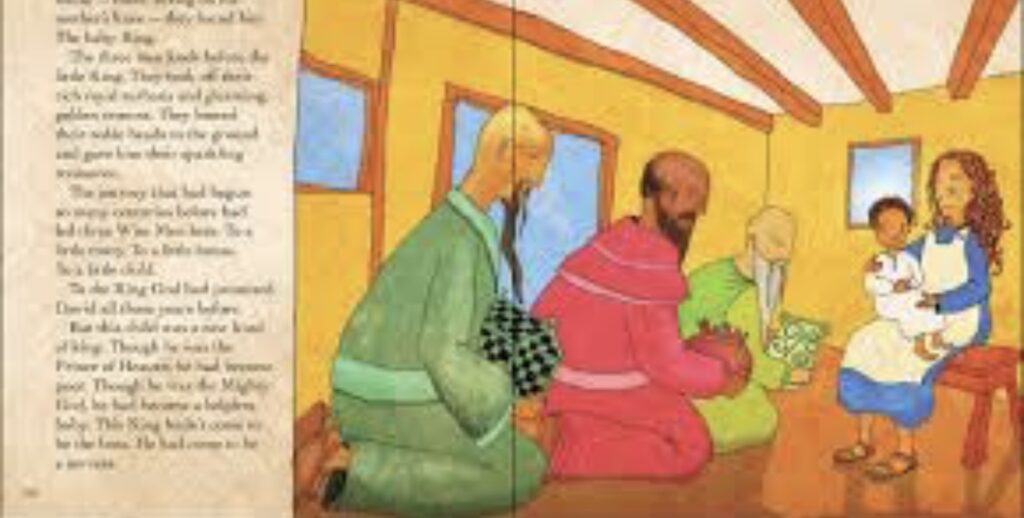
Most churches in Japan, where I live, are small and often do not have enough children to have Sunday School classes. So they have “Children’s Church” before the main service, which is a brief homily addressed to children. During these messages, church members usually enjoy the cute antics and unexpected responses of the children. But from my perspective, the problem about these homilies is that they tend to communicate unfortunate messages to children.
Often the text chosen is Matthew 19:13-15, about Jesus laying his hands on little children and blessing them with the words “Let the children alone, and do not hinder them from coming to Me; for the kingdom of heaven belongs to such as these.” At the end, the message often arrives at the conclusion that Jesus loves children and approves of them as having exemplary faith, since Jesus teaches that we need to have faith like children (Matthew 18:3). This kind of exposition ignores the historical context and is doctrinally unsound. It suggests that God is impressed by some inherent virtue or attractiveness of children. However, by nature children are corrupted by sin and have a lack of trust in God.
In the time of the New Testament, many people viewed children as mainly financial or material assets and otherwise excluded them from the adult world. However, in our own time, the opposite mentality holds sway in many places, where children are considered to have great virtue, more so than adults. In fact, these days we even find movies and TV shows that feature children scolding and instructing adults, with the adults frequently apologizing to children. In light of the contemporary scene, it is especially dangerous and misleading to pander to children.
Consider one bestselling book which falls into the trap of pandering to children — The Jesus Storybook Bible by Sally Lloyd-Jones, who is no relation to the preacher D. Martin Lloyd-Jones. The book makes no mention of God’s wrath or hell but rather inundates its readers with the message of the love of God, even in places when Scripture itself has no such message. For example, the conclusion of the creation account in Genesis 1 (in which God pronounces his creation “good”) here becomes “God saw all that he had made and he loved them. And they were lovely because he loved them.” Furthermore, the consequences of the Fall are no longer about God’s curse on sin but rather that “a terrible lie came into the world. It would never leave. It would live on in every human heart, whispering to every one of God’s children: ‘God doesn’t love me.’”
As Mike Gendron points out, this kind of popular evangelistic approach “emphasizes God’s love while ignoring His holiness, justice and hatred of sin.” Lloyd-Jones’s sugar-coated reinvention of the Fall is the polar opposite the more honest, biblical approach of Jonathan Edwards. We can see this in his outline and notes for one special message to children. It does not present us with the wonderfulness of children or the kind of warm, cuddly image of God that religious material for children often has nowadays.
To begin with, the message’s Scripture text is II Kings 2:23-24, about Elisha calling down a curse on a group of boys jeering at him. Two bears suddenly appear, mauling 42 of them to death. Most pastors nowadays would not touch this story in a message to adults, much less children. However, Edwards uses it to confront his child hearers with the unpleasant truth that “God is very angry at the sins of children.” Nevertheless, Edwards also makes clear his heartfelt concern for them: “You all have precious souls. Had I not known that, I should not have called you together today.”
In his book including this message, Seeking God: Jonathan Edwards’s Evangelism Contrasted with Modern Methodologies, William Nichols remarks that many nowadays think that hearing about the wrath of God will traumatize children. He observes that child evangelism ministries these days advise that children be constantly told that God loves them. Nichols notes that in this message Edwards never once says that sort of thing but instead impresses on them their depravity: “Persons are guilty of a great deal of sin when they are children. . . They deserve to burn in hell forever. . . Wicked children are in God’s sight like young serpents. We hate young snakes. They are the children of the devil.”
Is it really advisable or effective to speak to children in this way? Evidently children responded to Edwards’s preaching. In A Faithful Narrative of a Surprising Work of God he recounts the conversion of a four-year old named Phebe Bartlet. One day her mother finds her crying and declaring “I am afraid I shall go to hell!” Phebe prays and cries out to God for salvation. After a period of time, suddenly her whole demeanor changes, and she cheerfully informs her mother, “I can find God now!” This experience resulted in an ongoing change of behavior (the fruit of genuine conversion), as evidenced in her deep concern for the fate of the souls of her siblings, distress over her sins, and a desire to hear biblical preaching.
The delicacy that shields children from the harsh realities of the Christian faith is not really kindness. In eternity, multitudes of the offspring of “only love” religion will find out to their horror that the God of wrath is a reality. Others will be forever grateful that someone loved them enough to confront them with the unpleasant truth about their depraved condition and God’s wrath toward it, because that prepared them to put their trust in the good news of God’s redemption of sinners in his Son Jesus.
[Editor’s Note: Contributed by Bruce W. Davidson]











